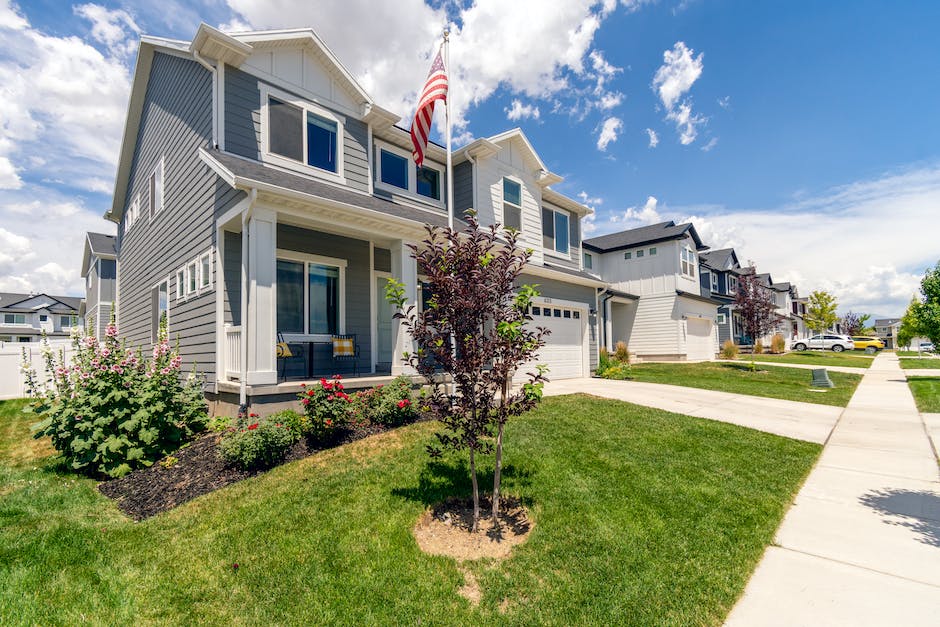Homeowner Associations (HOAs) play a pivotal role in preserving both the value and aesthetic appeal of a neighborhood. Adherence to HOA rules and regulations is crucial for maintaining harmony within a community; however, ensuring compliance can be challenging. One effective strategy is to engage a professional property manager. Their role can vastly simplify the task of HOA compliance, as they bring their experience and knowledge to confidently manage common areas and enforce norms. The decision to live within an HOA-governed community comes with its unique blend of advantages and potential obstacles. Hiring a proficient property manager can serve to maximize the benefits and smooth over the hurdles. However, the critical task is selecting the right property manager who aligns with your specific HOA needs and managing the costs of this service effectively.
The Importance of HOA Compliance
Importance of HOA Compliance
HOA compliance is integral to maintaining the value, aesthetics, and overall quality of life within a community. Each homeowner is expected to adhere to the rules and regulations set up by their respective HOA. These policies typically concern the home’s exterior appearance, noise levels, parking rules, and general property upkeep. Adherence to these rules ensures a harmonious cohabitation experience amongst homeowners and protects the visual appeal and community standards.
Common HOA Rules
HOA rules can be extensive and do differ slightly depending on the community, but some common regulations include restrictions on the color a homeowner can paint their property, the type of landscaping allowed, restrictions on types or sizes of pets, regulations on home renovations or modifications, and rules about noise. Another common rule pertains to the maintenance: homeowners may be required to keep lawns mowed, bushes trimmed, or restrict placement of items like trash bins or recreational equipment visibly outside the home.
Consequences of Non-Compliance
Failure to comply with HOA rules can result in several consequences. Initially, you will receive a written notice reminding you of the specific rule that has been violated. Continuous non-compliance after several warnings may result in fines. These fines can accrue over time, and in extreme cases, the HOA can place a lien against the property or even force a foreclosure.
The Role of a Property Manager
In terms of HOA compliance, hiring a property manager can be immensely beneficial. A skilled property manager will fully understand the specific rules and regulations of your HOA. From ensuring the proper color scheme of the exterior of the house, to managing noise levels, upkeep of the property and the landscaping aesthetics, a property manager can handle all these responsibilities efficiently. They can also work as a liaison between the homeowner and the HOA, facilitating communication and resolving any disputes that may arise.
Benefits of Hiring a Property Manager
Hiring a property manager for HOA compliance also brings with it many other advantages. The burden of staying updated with rule changes, attending HOA meetings, or dealing with complex paperwork can be entirely taken off your shoulders. Regular property inspections to ensure ongoing compliance will also be scheduled and undertaken by the property manager, who can then suggest and help implement any necessary changes. This not only ensures continuous compliance but also allows homeowners to enjoy their property stress-free.
Choosing the Right Property Manager for Your HOA
The process of selecting a property manager for your HOA should be one that involves careful consideration. Your top factors should include their prior experience in managing similar properties, their comprehension of real estate laws, and a positive established relationship with the HOA. It is essential for their duties and obligations to be explicitly stated in a legally binding agreement. By employing an efficient property manager, you can better maintain the value of your property as well as promote a harmonious residential atmosphere by ensuring adherence to all HOA stipulations.

The Role of a Property Manager in HOA Compliance
The Crucial Role of a Property Manager in HOA Compliance
When it comes to HOA compliance, a property manager serves a major part. They are the immediate point of communication between homeowners and the HOA, guaranteeing that both the guidelines set out by the community are respected and the overall community expectations are fulfilled. This role holds significant weight as a proficient property manager can create a balance for the community members to coexist in peace while enhancing and safeguarding the value of the properties within the community.
Responsibilities of a Property Manager in HOA Compliance
One of the key roles of a property manager in HOA compliance is implementing and enforcing HOA rules. They are responsible for ensuring that all homeowners understand and abide by these rules. This could involve educating homeowners about the HOA rules, and taking appropriate action when these rules are violated.
Another significant responsibility of a property manager is handling disputes that may arise within a community. Disagreements can be, and often are, a common occurrence among homeowners. These disputes can range from minor disagreements over aesthetic decisions to serious issues concerning property boundaries and noise disturbances. A competent property manager should be able to mediate these situations tactfully and diplomatically, ensuring that disputes are resolved amicably.
Managing common areas is another essential function of a property manager in HOA compliance. Common areas include parks, swimming pools, clubhouses, and other shared amenities within the community. A property manager is responsible for maintaining these areas, which may involve regular cleanliness checks, monitoring upkeep, scheduling repairs or renovations, and much more.
Advantages of Engaging a Property Manager for HOA Compliance
Bringing a property manager on board for HOA compliance can reap a plethora of benefits. Their refined skills and extensive experience in navigating property-related complexities can significantly lighten the load for board members, enabling them to focus more on their core duties for the smooth operation of the HOA.
Importantly, property managers serve as objective rule enforcers for the HOA, thus mitigating possible disputes. Their impartial viewpoints on contentious matters often help in defusing potential altercations among residents.
Additionally, a property manager’s duty includes ensuring the HOA abides by all legal requirements, thereby protecting it from potential legal pitfalls. These obligations encompass adherence to federal, state laws tied to property management, fair housing, and homeowners associations.
Financial management is another perk of engaging a property manager. Their work includes collecting dues, running the HOA’s budget, and performing financial reporting. With their financial acumen, they can assure the HOA’s financial well-being, ensuring its stability and viability in the long term.

Living with an HOA: Pros and Cons
The Function of the HOA and Property Manager
At its core, an HOA (Homeowners Association) is designed to upkeep and enhance the value of properties within its community. By enforcing guidelines and standards for landscaping, architecture, and the external aesthetics of homes, among other aspects, the HOA ensures the neighborhood exhibits an appealing, congruent visual identity. This consistency is critical as it can lead to an uptick in property prices over the long haul.
To help in undertaking these hefty tasks, many HOAs resort to hiring seasoned property managers. These professionals manage the day to day operations of the HOA, encompassing financial matters, maintenance requests, enforcement of HOA rules and regulations, and mediating communication between HOA board members and homeowners.
Benefits of Hiring a Property Manager
One significant advantage of a property manager is that they bring professional experience to the table. They understand the local market and laws. They are experienced in conflict resolution, ensuring that disagreements between neighbors or disputes over HOA violations are amicably and fairly settled.
Another advantage of hiring a property manager for HOA compliance is that they can handle the logistics of day-to-day maintenance, from landscaping to structural repairs. This significantly reduces the burden on the HOA board and ensures a high standard of upkeep in the community.
Lastly, they can ensure all residents are meeting their financial obligations to the HOA. This responsibility includes collecting annual dues, managing the HOA’s budget, and allocating funds for necessary community improvements or repairs.
The Advantages and Disadvantages of an HOA and Property Manager
While an HOA can offer many advantages such as shared amenities and well-groomed neighborhoods, it’s important to note that they impose certain restrictions. These limitations can restrict homeowners’ freedom to customize their property or use it in an unrestricted manner.
Living in an HOA community also necessitates consistent payment of fees. These mandatory dues fund communal amenities like swimming pools, gyms, and communal landscaping. However, some residents may not perceive these benefits to be worth the cost. Hiring a property manager can be an added expense on the HOA’s budget.
Moreover, the service quality can differ greatly amongst property managers. A property manager who lacks experience or qualifications may not effectively address maintenance issues or enforce HOA rules, leading to potential disputes within the community.
All in all, while employing a property manager for HOA compliance can bring professionalism and improvements to a community, it also comes with potential drawbacks like added costs, restricted personal freedom, and possible mismanagement. Thus, these considerations should be carefully weighed before deciding to engage a property manager for an HOA.

Choosing the Right Property Manager for HOA Compliance
Elucidating the Role of a Property Manager in HOA Compliance
The property manager’s role in an HOA is crucial as they are responsible for its day-to-day operations. Their duties include overseeing the maintenance and administrative aspects of the community. They act as a regulatory force ensuring the HOA maintains compliance with local and state laws, while also abiding by the community’s governing documents. In essence, the property manager is a linchpin in not only upholding the visual appeal and functional integrity of the community but also in fortifying legality and order within the HOA.
Identifying a Competent Property Manager
When hiring a property manager, you’ll want to zero in on the individual’s experience and qualifications. Look for someone who holds a professional certification in property management, such as the Certified Manager of Community Associations (CMCA) designation or the larger scale Professional Community Association Manager (PCAM) credential.
Determine how long the potential property manager has been working in property or HOA management. Proven experience in the field signifies their capacity to handle varied situations, including dealing with compliance issues.
Honing in on HOA Laws and Regulations Understanding
One of the vital aspects of hiring a property manager for an HOA is their understanding of HOA laws and regulations. Being versed in state laws governing HOAs, understanding the intricacies of the Fair Housing Act, and familiarity with the community’s CC&Rs (Covenants, Conditions & Restrictions) are essential for the potential hire. They should demonstrate a deep understanding of enforcement tools available to an HOA, from fines, liens, to possible foreclosure for assessment delinquencies.
Key Questions to Ask a Potential Property Manager
While searching for a property manager, prepare a comprehensive list of questions to assess their suitability in handling your HOA. Ask about their past experience handling compliance issues. How many HOAs have they managed before? Have they assisted with developing or revising compliance policies? How do they handle non-compliance among homeowners? Their answers will shed light on their capacity and aptitude to handle the complexities of HOA compliance.
Maintaining Effective Communication
Choosing a property manager for your HOA isn’t only about validation of credentials and experience, but also their communication skills. An ideal property manager is a proficient communicator, necessary for delivering regular compliance updates. Notably, successful management of relationships is an essential quality, as the professional will act as a link between the HOA board, homeowners and various stakeholders.
Importantly, a competent HOA property manager will manifest a readiness to stay updated with changing laws and regulations impacting the community’s operation. This proactive approach is indicative of their commitment and adaptability, both crucial traits for effectively managing your HOA.

Managing Costs of HOA Compliance with Property Manager
Evaluating Property Management Fees
In your quest to hire a property manager for your Homeowners Association (HOA) compliance, it’s pivotal to consider the cost implications. Typically, property management fees may vary widely, but they usually fall between 4% to 10% of the rent collected from residential properties. Such fees are determined by a few factors including the number of properties to be managed, the geographic location, and the overall property condition.
Costs Associated With HOA Compliance
Property managers render numerous services around HOA compliance, and all these services may attract additional costs. Some of the potential expenses include setting up fees, lease renewal fees, and marketing fees aimed at attracting new residents to the property.
A property manager may also charge a maintenance fee for obtaining quotes, supervising work, and paying vendors on the homeowner’s behalf. Additionally, they may bill for evictions, taking legal action against tenants, or appearing at a court hearing.
Importance of Creating a Budget
To manage these costs effectively, it’s crucial to create a budget. Developing a comprehensive budget enables you to outline all the foreseeable expenses associated with property management. With a budget, you can align these costs with your financial goals and anticipate monthly and annual expenses.
Return on Investment
The cost-saving benefits of hiring a professional property manager for HOA compliance often outweigh the cost incurred. Having a professional property manager saves time, ensures the property owners’ legal compliance, helps avoid costly mistakes, and might even increase property values. Additionally, rental income often offsets large portions of the management fees.
The Role of a Property Manager
Upon hiring a property manager, They will coordinate all the day-to-day operations of your property. This includes collecting rent, responding to tenant requests, arranging for repairs and maintenance, and ensuring that you’re in compliance with local and national regulations. Property managers are also vital in assisting in dispute resolution, enforcing the community rules, helping with budget preparation, and dealing with HOA’s legal matters.
Strategy for Managing Costs
In order to effectively manage your property management costs, strive to keep open communication with your property manager. Ask them to provide detailed monthly reports so you can keep track of all income and expenses. Regular auditing can also help to ensure the fees charged are justified. It may also be advantageous to negotiate the terms of the management contract to potentially reduce some costs.
Remember, while the fees associated with a property manager may seem high, the services they provide almost always save property owners significant time, potential legal complications, and often, money in the long term. Assessing the benefits to cost can help make an informed decision.

Having a competent property manager overseeing HOA compliance can not only streamline the process but also enable a peaceful and pleasant living environment. When choosing a property manager, factors such as experience, qualifications, a keen understanding of HOA regulations, and cost management skills cannot be compromised on. Despite the costs involved in hiring a property manager, the multitude of benefits and cost-saving opportunities they bring along justify the investment. Whether it’s about maintaining property values, implementing compliance, or managing disputes─ a proficient property manager can be the fulcrum around which an efficient, harmonious, and compliant HOA community can revolve.
